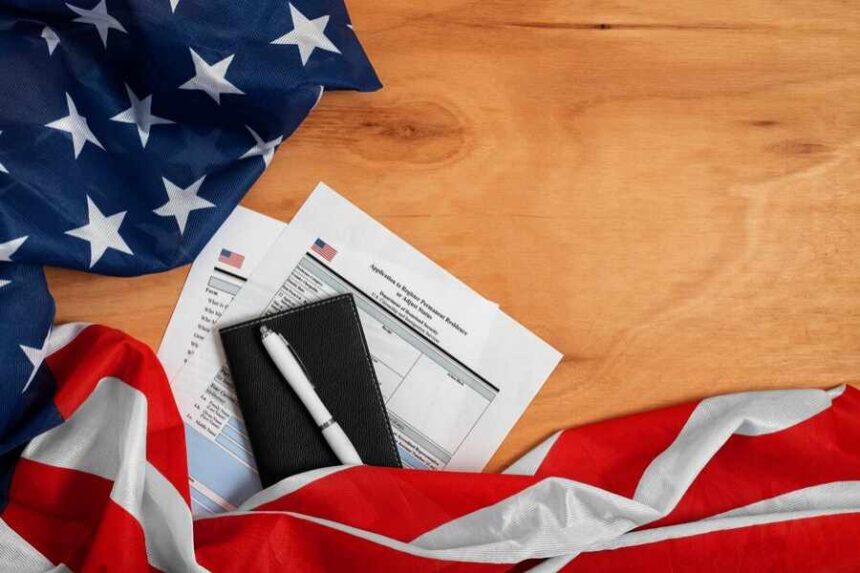In theory, US citizens enjoy an unalienable right to return to their homeland. But the question remains—can a US citizen be denied entry back into the USA under certain circumstances? The short answer is generally no. However, the longer explanation is layered with legal complexity, national security exceptions, and real-world case studies that reveal otherwise.
- Legal Rights of Citizens Returning to the United States
- When Can a US Citizen Face Entry Complications?
- Missing or Invalid Passport
- Citizenship in Question
- Security Watchlists or Alerts
- Ongoing Legal Issues
- Dual Citizenship Confusion
- Common Reasons a US Citizen Might Be Delayed at the Border
- What to Do If You’re Detained or Delayed During Re-entry
- Can a US Citizen Be Denied Entry Back into the USA by Mistake?
- Conclusion
- FAQ’s
In today’s globalized world, Americans travel more frequently than ever before. While the U.S. Constitution guarantees re-entry to its citizens, that doesn’t mean the process is always smooth or guaranteed without friction. Delays, detentions, and questioning can occur at ports of entry—and in rare cases, re-entry may be deferred pending verification.
This guide provides a full breakdown of the legal, procedural, and practical realities behind this issue. Whether you’re a frequent traveler, an expatriate, or someone concerned about your re-entry rights, we’ll help you navigate the facts surrounding this often misunderstood topic. From border patrol authority to documentation problems, you’ll get a clear view of when and how complications arise—and what to do if they happen to you.
Can a US citizen be denied entry back into the USA?
Legally, no—they have the right to return. However, delays, secondary screenings, and rare complications can occur if citizenship is in question or security concerns are raised.
Legal Rights of Citizens Returning to the United States
Under the U.S. Constitution, citizens cannot be barred from returning to the United States. This principle is grounded in the Fourteenth Amendment, which affirms the right of citizenship and the protections that come with it. Several Supreme Court decisions have consistently upheld that American citizens possess an inherent right to re-enter their country, no matter how long they’ve been abroad or where they’ve traveled.
However, international travel isn’t always straightforward. While outright denial is exceedingly rare, U.S. citizens may face delays, extensive questioning, or even short-term detention as border officials verify documents. This can happen when citizenship status is unclear, the traveler shares a name with someone on a watchlist, or discrepancies exist in federal databases. Like a pixels to inches converter translating values accurately behind the scenes, border agents work to reconcile identification issues before admission.
Dual citizenship adds another layer of complexity. Citizens returning under a foreign passport may be asked to show proof of U.S. citizenship, leading to longer processing times and more rigorous questioning from Customs and Border Protection (CBP).
In extremely rare scenarios—such as extradition requests or suspected fraudulent entry—authorities may temporarily halt re-entry for legal clarification. Still, these situations are exceptional and not the norm for the average returning citizen.
When Can a US Citizen Face Entry Complications?
Even though U.S. citizens have the legal right to return, certain situations can complicate the re-entry process. These scenarios may not result in denial but can cause delays and added scrutiny.
Missing or Invalid Passport
One of the most common reasons a U.S. citizen may face complications when trying to re-enter the country is not carrying a valid U.S. passport. Although CBP officers have ways to verify citizenship through other documents, not having a valid passport slows down the process significantly and can trigger extra layers of questioning.
Citizenship in Question
Citizenship verification issues often arise when someone was born abroad or has errors in their naturalization paperwork. Incomplete or inconsistent documentation can cause border agents to question the legitimacy of a citizenship claim, leading to delays while additional verification is conducted.
Security Watchlists or Alerts
If a traveler’s name matches one on a government watchlist or security alert, CBP is authorized to detain or question the individual further. Although re-entry cannot be denied to a verified citizen, the delay can be frustrating and may require thorough screening before release.
Ongoing Legal Issues
Citizens with outstanding warrants, pending court cases, or previous immigration violations may face additional scrutiny. These legal flags can trigger secondary inspection and require coordination with other agencies before allowing full entry into the country.
Dual Citizenship Confusion
Travelers who use a foreign passport without presenting proof of U.S. citizenship can cause confusion at the port of entry. In such cases, CBP officers may delay the process while confirming that the individual holds valid U.S. citizenship documentation.
Common Reasons a US Citizen Might Be Delayed at the Border
While U.S. citizens cannot be denied re-entry, several situations may lead to delays, questioning, or additional screening at the border. These instances typically don’t signal wrongdoing but rather reflect procedural safeguards or identity verification challenges. Understanding these common scenarios can help travelers better prepare and reduce stress during the re-entry process.
- Traveling without a valid U.S. passport: Not carrying a valid U.S. passport is one of the most frequent causes of delay. Although CBP can verify citizenship through alternative documents, the lack of a passport slows down the process.
- Name matches someone on a government watchlist: If your name closely matches a flagged individual, CBP may conduct secondary screening to confirm your identity. This often includes additional questioning or background checks.
- Discrepancies in documentation: Inconsistencies between naturalization records, birth certificates, or travel documents can trigger delays as officers attempt to clarify conflicting information.
- Returning after a long period abroad: Spending years outside the United States can sometimes raise questions about residency or citizenship status, prompting additional verification.
- Associations with flagged individuals or regions: If you’ve traveled through high-risk areas or have known associations with individuals under investigation, border agents may take extra precautions.
- Errors in airline or customs systems: Mistakes in manifests or digital travel records can lead to red flags, requiring manual checks and extended processing times.
What to Do If You’re Detained or Delayed During Re-entry
If you’re detained or delayed at a U.S. port of entry, stay calm and cooperative. As a U.S. citizen, you have the right to speak with a supervisor and request clarity on the reason for the delay. While most situations don’t require legal help, you may ask for an attorney if the questioning becomes intensive or your citizenship is disputed.
Always travel with essential documents such as a valid U.S. passport, Global Entry card, or previous travel records to speed up verification. If you’re delayed due to being on a government watchlist, you can file a case through the DHS Traveler Redress Inquiry Program (TRIP) to correct identity issues or clear errors.
Though being denied entry is extremely rare, delays and inspections do happen. Being prepared, informed, and carrying proper documentation is your best defense for ensuring a smooth re-entry into the country.
Can a US Citizen Be Denied Entry Back into the USA by Mistake?
Although the law guarantees re-entry for U.S. citizens, administrative or procedural errors can cause delays that feel like denials. These are usually temporary but can be frustrating if not understood ahead of time. Below are the most common mistakes or misunderstandings that can impact your re-entry process.
- Human Error in Federal Databases: Misspelled names, incorrect birth dates, or inaccurate nationality entries in CBP or TSA systems can flag a traveler for further inspection. These simple data entry errors may lead to delays until identity is verified.
- Misuse of Foreign Passport: Traveling with a foreign passport and failing to declare U.S. citizenship can raise suspicion. Border agents may question your intentions and require additional proof before allowing re-entry.
- Misunderstanding of Dual Nationality Laws: Some customs officers might not be fully trained in handling dual citizenship cases. This can result in improper questioning, delays, or incorrect initial assessments.
- Overseas Criminal Charges: If a citizen is returning while facing unresolved legal issues in another country, the U.S. government may coordinate with foreign agencies. Though re-entry must still be allowed, processing may be delayed.
- Expired Travel Documents: While CBP cannot deny entry to a U.S. citizen with an expired passport, the situation does trigger extended verification procedures, often slowing down your return significantly.
Conclusion
The question can a US citizen be denied entry back into the USA is often misunderstood. Legally, citizens cannot be refused re-entry. Still, that doesn’t mean your arrival will always go smoothly. Border delays can occur due to expired passports, mismatched records, or confusion about dual citizenship status. These situations may lead to questioning or secondary screening but not permanent denial.
The best way to avoid unnecessary stress is to stay informed and well-prepared. Carry valid documents, know your rights, and understand the procedures at U.S. ports of entry. While rare complications can happen, knowing what to expect helps ensure your re-entry experience is quick, smooth, and hassle-free.
FAQ’s
Can a US citizen be turned away at the airport?
No, a U.S. citizen cannot legally be refused re-entry. However, you may be delayed for verification or security screening.
What documents do I need to re-enter the USA as a citizen?
A valid U.S. passport is the most reliable form of ID. Other documents may include birth certificates, Global Entry cards, or naturalization papers.
What happens if my U.S. passport expires while abroad?
You can still re-enter the U.S., but your processing will be delayed while your identity is confirmed.
Can dual citizens be denied entry into the USA?
No, but they must prove their U.S. citizenship if traveling on a foreign passport. Documentation is key.
What should I do if I’m placed on a government watchlist?
Apply for redress through DHS TRIP to clear any mistaken identity or wrongful listing that may delay future travel.




